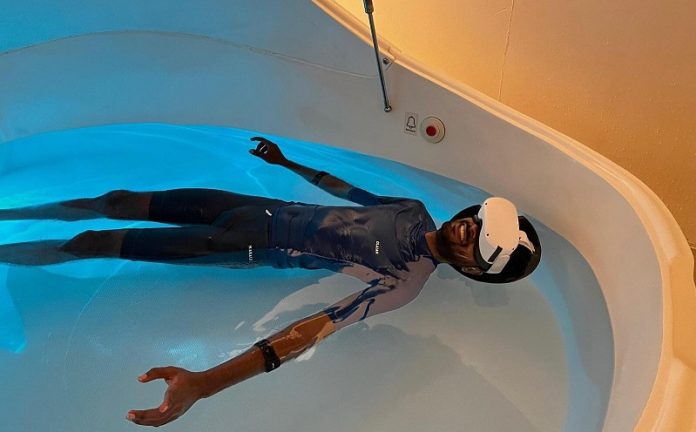
Researchers at Monash University have developed a new system using virtual reality (VR) and flotation tanks to help people reduce their fear of water, known as aquaphobia.
This system, called an extended reality (XR) experience, was created by the Exertion Games Lab, part of the university’s Faculty of Information Technology.
The study was published in the Proceedings of the CHI Conference on Human Factors in Computing Systems.
The XR system combines a water-filled flotation tank with a VR headset, which provides participants with calming and immersive visual and auditory experiences.
Participants wear the headset while floating in the tank, and the VR system monitors their heart rate, breathing, and head movements to help guide their interactions with the virtual environment.
The lead researcher, Maria Montoya, explained that people with aquaphobia often avoid recreational water activities due to their fear, which can sometimes lead to a fear of drowning.
The XR system is designed to help people gradually face their fear of water in a safe and playful way, similar to how virtual reality exposure therapy works.
The experience takes participants on a virtual journey through different water-themed worlds, led by a character called a “water spirit.”
The water spirit provides encouragement and reassurance, helping participants feel safe and relaxed as they float in the water.
The journey unfolds in stages, starting with simple tasks and progressing to more complex situations, like navigating through virtual cyclones.
The goal is to help participants control their anxiety by guiding them to regulate their heart rate, which in turn stops virtual storms.
This hands-free interaction helps participants focus on relaxation instead of worrying about performing physical tasks in the water.
Twelve participants with a self-reported fear of water took part in the study.
They experienced the system in several steps, starting with lying on a yoga mat to measure their heart rate, then floating in the tank without technology, and finally using the XR system while floating in the water.
According to co-author Professor Florian “Floyd” Mueller, the results showed that participants were less anxious when using the XR system compared to floating in the tank without it.
The researchers hope that this new method could be used by mental health professionals to help people manage not only aquaphobia but potentially other phobias as well.



